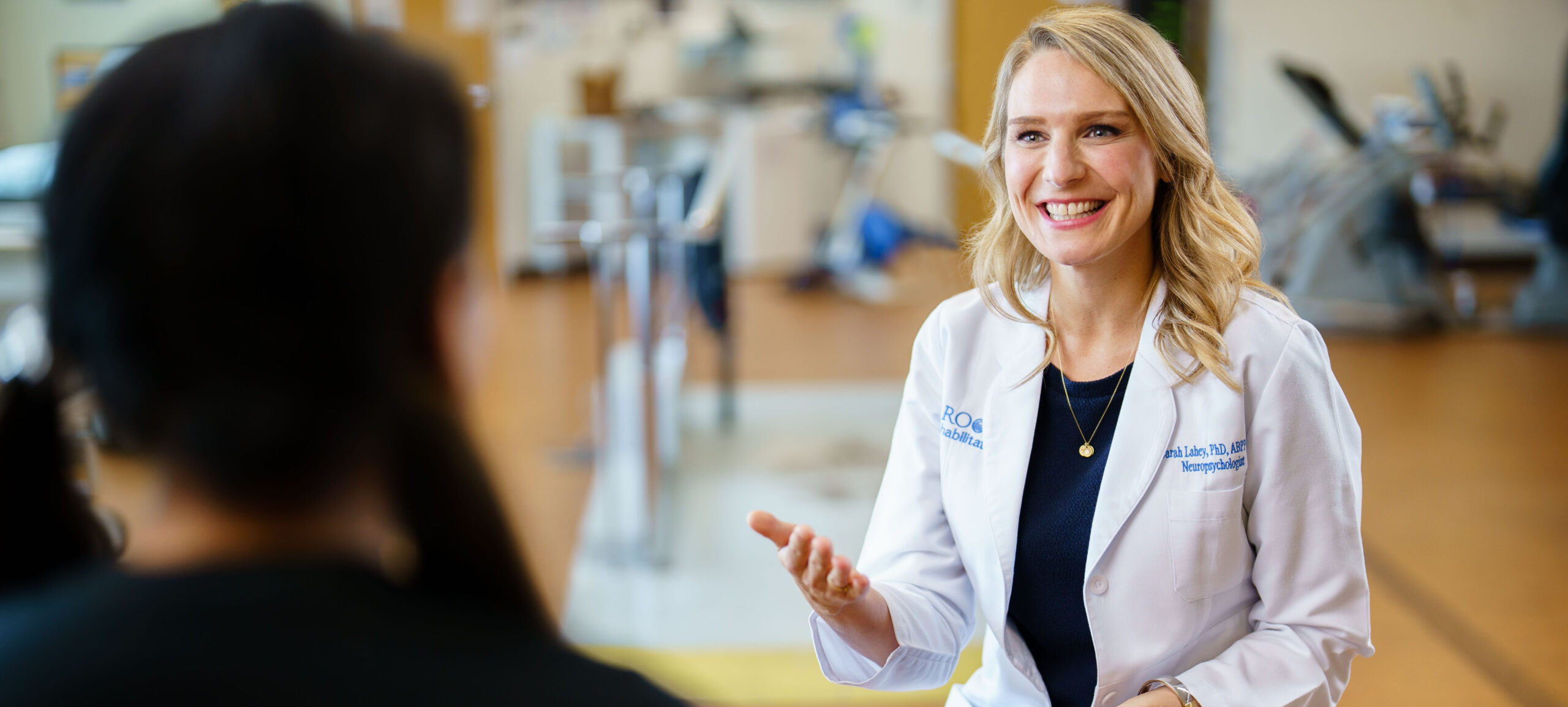What is cognitive rehabilitation?
Cognitive rehabilitation therapy (CRT) is a broad term that describes treatments used to treat cognitive, or thinking, problems that can happen after an injury or illness.
What conditions does cognitive rehabilitation help treat?
Many medical issues, such as traumatic brain injury (TBI), stroke, concussion, Parkinson’s disease, multiple sclerosis (MS), or dementia can cause cognitive difficulties.
These difficulties may involve memory, attention, social behavior, safety judgment, and planning and carrying out future actions. They affect a person’s ability to care for themselves, keep appointments, complete tasks, or interact with people appropriately. At stake is the person’s ability to succeed at work, school, or home.
What treatments are used?
There is no single approach to CRT. It may involve several experts working together to make a comprehensive plan to restore as much function as possible, or it may be just one therapist working with the individual. In general, two broad approaches are used:
Restorative CRT: Reinstating or strengthening the functions a person either has lost or continues to find challenging.
Compensation CRT: Training the use of strategies (e.g. devices, calendar, alarms) to assist in one in completing every day functions as they build new skills.
What are the goals of cognitive rehabilitation?
The main goal of CRT is to improve independence and to maximize an individual’s ability to engage in life.
Our expert team
Several different types of healthcare professionals deliver CRT. At Brooks Rehabilitation, these include speech-language pathologists and occupational therapists with training and certification in cognitive rehabilitation.
Connect with us
Patients will need to obtain a referral from their physician prior to starting CRT services. Once a referral is obtained, an initial evaluation appointment will be scheduled.
